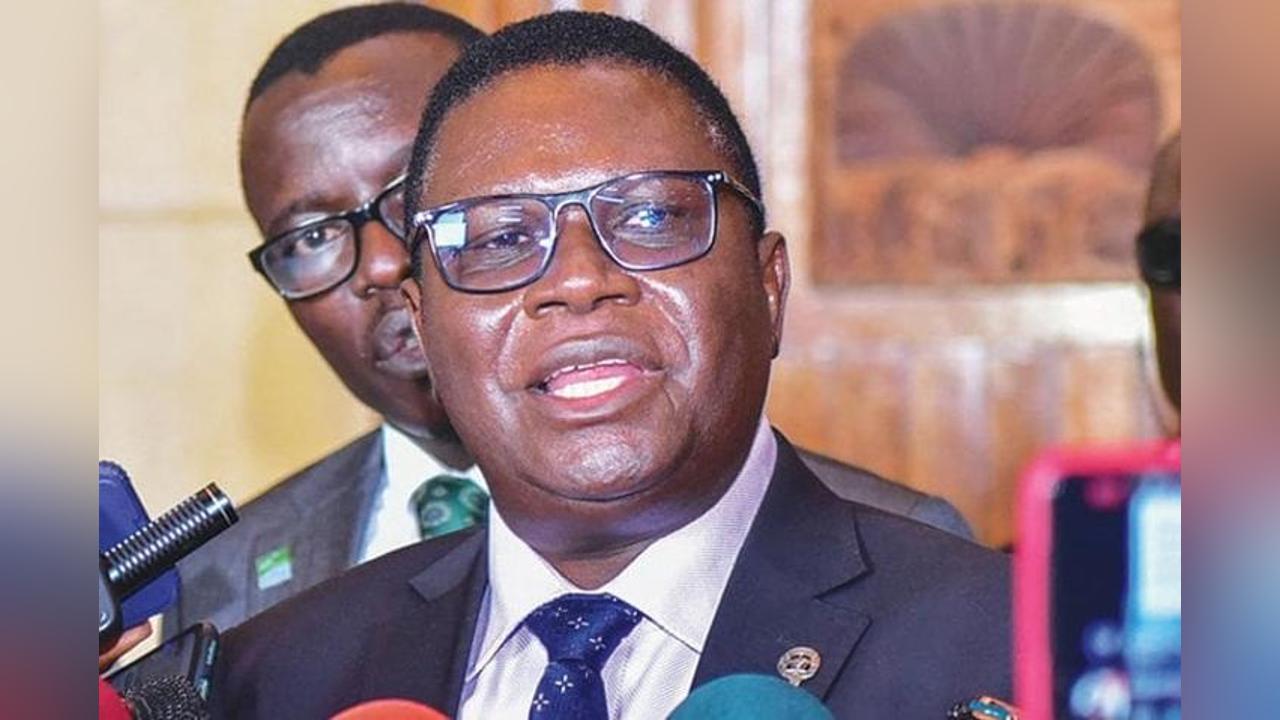Africa-Press – Uganda. The Democratic Party (DP) President and Minister of Justice and Constitutional Affairs, Norbert Mao, has defended the Inter-Party Organisation for Dialogue (IPOD), accusing sections of the opposition of “hypocrisy” for rejecting the platform while preaching unity.
Addressing media in Kampala, Mao described as “nonsensical logic” the attitude of opposition leaders who dismiss IPOD yet claim to champion national cohesion.
“If IPOD is unifying people, why would you oppose it?” Mao asked. “It is a contradiction to say you don’t support IPOD and yet preach unity.”
He accused some opposition figures of double standards, claiming they criticise others for working with government while benefiting from the same resources.
“The Leader of the Opposition moves in a convoy like the Prime Minister’s, using government fuel to campaign. Why are they not talking about that?” Mao said.
Mao dismissed allegations that his cooperation with President Museveni and the ruling National Resistance Movement (NRM) was a betrayal of the opposition cause. He argued that dialogue, not confrontation, is a mark of political maturity.
“When you go to IPOD meetings, there is no brain transplant,” he said. “You go with your brain unless you don’t have one in the first place. I can even sit with a witch doctor and still argue my case.”
The DP leader emphasised that IPOD remains a legitimate platform for resolving political disagreements peacefully.
“We are saying we can disagree without being enemies,” he said. “Dialogue is not surrender; it is leadership.”
Mao further explained that the Memorandum of Understanding (MoU) signed between the DP and NRM is a public document duly registered with the relevant authorities.
“The MoU is public; it’s not a secret. Those claiming ignorance of it are simply dishonest,” he said.
He urged political actors to prioritise openness, honesty, and mutual respect over smear campaigns and misinformation, saying Uganda’s progress depends on mature engagement.
Citing international examples, Mao referred to former U.S. President Donald Trump’s meeting with North Korean leader Kim Jong Un as an illustration of how dialogue can promote peace.
“Trump crossed into North Korea to meet Kim Jong Un. He didn’t die. He said if it brings peace, it’s worth it,” Mao said. “That’s leadership.”
He called on Ugandans to embrace dialogue and tolerance as the foundation for democratic growth.
“We must have the courage to sit at the same table and talk about our differences,” Mao said. “That’s how mature democracies work.”
The National Unity Platform (NUP), led by Robert Kyagulanyi, has repeatedly dismissed IPOD as a “tea table with the oppressor” and boycotted its activities.
Nevertheless, the party had continued receiving funds allocated to parliamentary parties through IPOD until recently, when its share was withheld following the enactment of the Political Parties and Organisations (Amendment) Act, 2025.
The new amendment restricts public funding to parties that are members of IPOD, effectively excluding NUP, which has yet to join.
At the latest IPOD summit held at Kololo, leadership of the organisation was handed to the Democratic Party under Mao’s stewardship.
He will now oversee the process of considering NUP’s application to join IPOD and access public funding.
Recently, Mao sparked controversy when he remarked that Uganda has six major political parties the NRM, DP, UPC, JEEMA, PPP, and FDC notably omitting NUP, despite it being the country’s largest opposition party.
In a letter dated October 10, 2025, addressed to NUP Secretary General David Lewis Rubongoya, IPOD asked the party to formally express interest in joining the platform before signing the MoU, emphasizing that admission requires adherence to established procedures.
According to the letter, a written expression of interest is the first legal and procedural step before the Council can consider and approve an application. Only after such approval can a new member formally accede to and sign the MoU.
This correspondence followed an earlier letter from NUP, dated October 7, 2025, in which Rubongoya expressed the party’s readiness to sign the MoU in compliance with the amended law.
In his communication, Rubongoya acknowledged that Parliament’s recent amendment to the Political Parties and Organisations Act (2005) requires all political parties represented in Parliament to either belong to IPOD or to the Forum for Non-Represented Political Parties and Organisations.
“The National Unity Platform has been and remains an active member of the National Consultative Forum,” Rubongoya wrote. “Although we have challenged the amendment before the Constitutional Court, we recognize the law as binding.”
He added: “In light of this, the National Unity Platform would like to sign the MoU given that we are members of the applicable constitutive organ of the National Consultative Forum.”
For More News And Analysis About Uganda Follow Africa-Press






